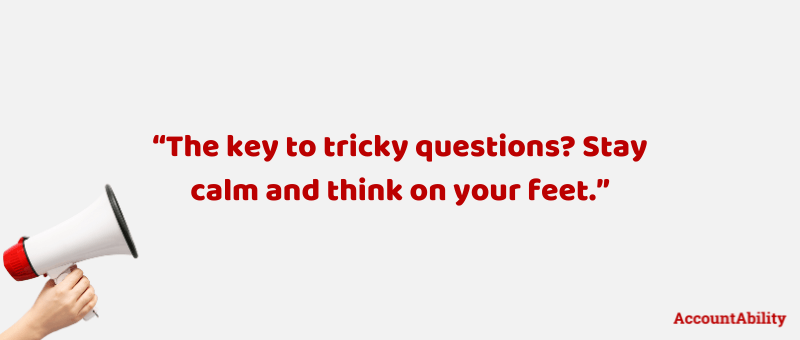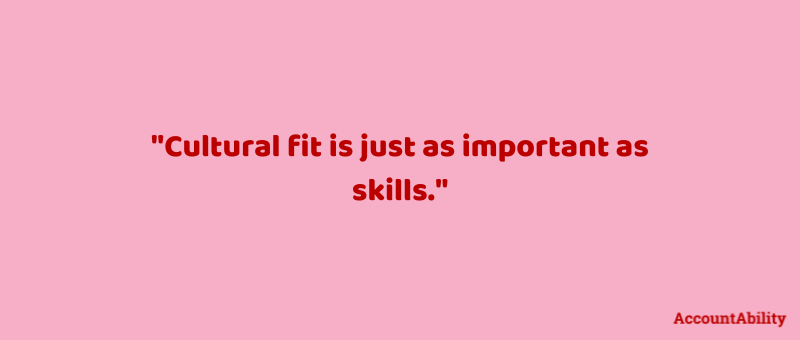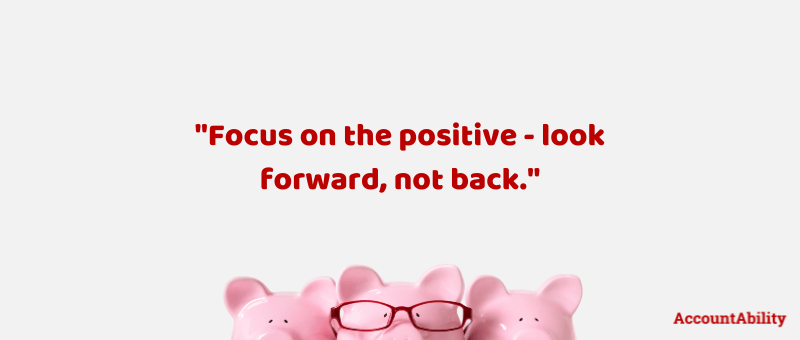Have you ever been in an interview and felt caught off guard by a tricky question? It’s a common scenario. Even with extensive preparation - researching the company, mastering the job description, and rehearsing answers - interviewers often throw in unexpected questions to test how you think on your feet.
To help you ace your next interview, we've compiled a list of common tricky questions across different themes and provided tips on how to answer them.
Your last role
Examples of questions:
Tell me about a situation that made you want to leave a job.
What part of your current role are you least interested in?
What one thing would you change about your last company?
How to answer:
These questions can feel like traps, as they may prompt you to speak negatively about past roles or employers. However, your response should always be positive and professional. For example:
Instead of saying, “I left because my manager was difficult to work with,” you could frame it as “I wanted to find a role where I could take on more responsibility and continue growing.”
Highlight what you gained from your previous role, such as new skills, experiences, or achievements, and explain how those have prepared you for this new opportunity.
“I want to gain exposure to a large ERP system” is better than “I’m tired of outdated systems.”
Key tip: Focus on the positive aspects of your decision and how they align with your future goals. Employers want to see that you approach challenges constructively and remain solutions-oriented.

Culture
Examples of questions:
Tell me about the culture of your last role.
What kind of culture do you work best in?
What type of culture are you looking for in your next role?
How to answer:
Company culture is a critical factor in job satisfaction, and interviewers want to ensure you’ll fit in well. Reflect on your past experiences:
Think about what made you feel supported and productive. For example, did you thrive in a collaborative, high-energy environment or prefer a quieter, more autonomous setting?
If you don’t know much about the company’s culture, don’t hesitate to ask. For example, you could ask, “What are the team dynamics like?” or “How does the company celebrate success?”
Key tip: Be honest about what works for you but also remain flexible. Emphasise that you’re adaptable and eager to contribute to a positive team dynamic.
Motivations
Examples of questions:
Why do you want to work for us?
Why are you interested in this particular role?
Why do you want to work in this industry?
How to answer:
These questions are your opportunity to demonstrate a genuine interest in the company and role. Employers want candidates who are enthusiastic and well-informed.
Research the company’s mission, values, and recent achievements. Reference these in your answer to show you’ve done your homework. For example: “I admire your commitment to innovation in payroll technology, and I’m excited to bring my skills in streamlining accounting processes to support your growth.”
Tie your answer back to your career goals, such as gaining exposure to specific systems, industries, or skills that align with the role.
Key tip: Avoid generic responses like “I want to work for a big brand.” Instead, focus on how the role aligns with your skills, interests, and long-term aspirations.

Other people's thoughts
Examples of questions:
If I were to call your referee, what would they say your strengths and weaknesses are?
If I met with your last two managers, what five words would they use to describe you and why?
How to answer:
These questions allow the interviewer to gauge your self-awareness and consistency. To answer effectively:
Reference specific feedback you’ve received from managers, colleagues, or performance reviews. For example: “In my last performance review, my manager highlighted my attention to detail and ability to stay calm under pressure as key strengths.”
For weaknesses, focus on areas you’ve actively worked to improve. For example: “I used to struggle with delegation, but I’ve since taken courses on time management and have made significant progress.”
Key tip: Ensure your answers align with the job description. If the role values collaboration, highlight teamwork as a strength.
Working styles & behaviours
Examples of questions:
Tell me about a time you took a risk and it went wrong.
What’s the biggest risk you’ve ever taken?
What motivates you more: fear of failure or desire for success?
How to answer:
These questions assess your resilience, problem-solving skills, and motivation. Use the STAR method (Situation, Task, Action, Result) to provide structured and impactful answers. For example:
“In my previous role, I suggested a new invoicing system to improve efficiency. While it initially caused some delays, I gathered team feedback and refined the process, ultimately reducing errors by 25%.”
Highlight lessons learned from failures and how you applied them to future challenges.
Key tip: Show that you’re proactive, adaptable, and not afraid to take calculated risks to achieve success.

Unusual questions
Examples of questions:
If you were a car, what make and model would you be and why?
What’s your favourite flavour of ice cream?
What song best describes you?
How to answer:
These quirky questions might seem irrelevant, but they’re often used to evaluate your creativity and how you handle unexpected situations. When answering:
Stay calm and confident. There’s no wrong answer, so let your personality shine through.
Tie your answer back to qualities relevant to the role. For example: “I’d be a Toyota Prius - reliable, efficient, and always striving to adapt to new challenges.”
Key tip: Use these moments to showcase your personality and problem-solving skills while keeping your answer professional and aligned with the company’s values.
Final thoughts
Interviews can be challenging, but they’re also an opportunity to showcase your unique skills and personality. Tricky questions are designed to see how you think under pressure and whether you’re the right fit for the company. By preparing thoughtful answers and practising your delivery, you’ll be better equipped to handle even the most unexpected questions.
At AccountAbility, we’re here to support candidates in Accounting and Payroll Support roles across Sydney and Melbourne. From interview preparation to finding the right cultural fit, we’ll help you land a role where you can thrive. If you’d like tailored advice or support in your job search, get in touch with our team of specialist recruiters today!

